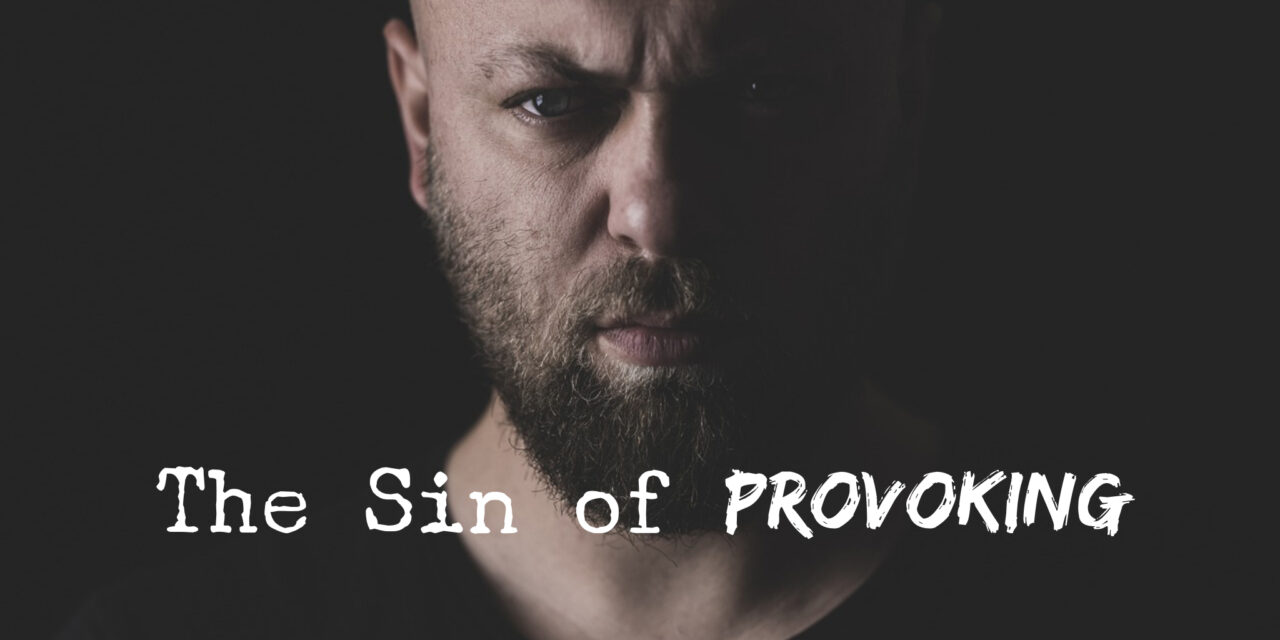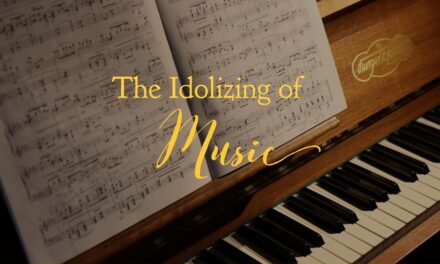“Provoke not…to wrath” (Eph. 6:4).
Many books have been written on forgiveness. They are definitely needed. But for all of those, it seems there ought to be a least a few written on “provoke-ness”!
Bitterness is wrong, but so is provoking. Instead of focusing on someone’s negative reaction whenever our words or actions are met with an unpleasant response, we would do well to search our own hearts to see if the fault lies with our own unnecessary provocation.
I remember a situation from years ago where there was major tension between certain ministerial staff members. I knew them all well. One of their number was a true gentleman—and not just in public. It was who he was. However, as the situation worsened with time, all parties were shocked when this man finally blew up. Witnesses would subsequently focus on the momentary outrage and condemn the man, citing his reaction as proof that he was wrong and they were justified. Amazingly, no one questioned what was said or done to elicit such a strong response from such a gentle person.
In churches, Christian schools, and Christian colleges, people seem shocked when a church member in good standing or a good kid on the right path “goes off the rails.” Most seemingly focus on the shocking new direction and take a stand in condemning the choice, if not the person. But how many bother to ask what could have provoked such a response from someone seeking to do right?
While individuals reacting poorly are responsible for their poor choices, those who provoked such responses are also responsible. What healing might be experienced if the provokers humbled themselves, recognized their culpability, and apologized for the provocation. Doubtless, some hurting individuals could be helped even by the very ones who hurt them, and needful healing could begin before things harden and the person is drawn down a destructive path that no one wants.
Leaders especially would be helped by recognizing the danger of provoking. “Provoke not…to wrath” (Eph. 6:4). It’s one thing, as Proverbs cautions, to recognize an angry person and beware; it’s quite another thing to provoke to the point of an angry response an individual who is seeking to do right (and then condemning the person for their angry response).
What triggers the bad response? This question must be addressed. Obviously, I’m not talking about the legitimate confronting of obvious sin. Provoking usually stems from that which is beyond reason. While institutions understandably must have standards and systems in place, any number of unreasonable measures can also exist alongside necessary, needful rules. An oppressive rigidity, a disregard for common sense, and a general unreasonableness often find a match with overreaching leaders. The thoughtless condemning of the innocent, the proliferation of double standards that favor the elite, and like measures are often the means by which sincere souls are un-righteously provoked (in the name of righteousness).
Some individuals have been adversely affected for years with tragic effects. Much of this might well have been avoided if provocation had been avoided or rightly dealt with upon occurrence. I realize grace is still available, and God can and will use the sin of provoking in the lives of those who have been provoked if they will love and trust God to do so (Rom. 8:28). What an amazing God who can bring good out of evil as in the case of Joseph and his brothers! Sadly, some will not take this grace and miss out. They are responsible. But so are the provokers. God knows the full picture.
Sometimes, less mature Christians are provoked by those in authority, those holding positions that reason dictates should be occupied by the more mature. It’s a conundrum to sincere people to have their “spiritual leaders” provoke them and then condemn them for responding with pain. Pain is involuntary. When people respond in pain, the ones causing it need to examine whether they have acted in the flesh. If so, they absolutely must humble themselves instead of self-righteously justifying and condemning the pained response of the provoked. Doing otherwise only inflicts more pain. Humility brings healing, but pride deepens existing wounds.
To maintain a biblical balance, note that there are times when true friendship yields wounds intended to awaken and help. “Faithful are the wounds of a friend; but the kisses of an enemy are deceitful” (Prov. 27:6). Such wounds are rooted in love and offer valuable opportunities for growth. But, in my 35+ years of ministry, I have noted far too many wounds that are not of this legitimate and necessary sort. They are of the flesh and not of the Spirit. It is the sin of provoking.

John Van Gelderen
Post Author













Amen! Thank you for speaking out on this.
Well said, Brother. A too often neglected topic, but an important one indeed!
Thank you, Brother John! This quote stood out to me- “Pain is involuntary. When people respond in pain, the ones causing it need to examine whether they have acted in the flesh.” This reminds me to never cause anyone to stumble, especially the little ones. I have to take the beam out of my own eye daily. We know that in our flesh dwells nothing good. Therefore, when somebody responds in pain; we can remember we are capable of the same response. May we esteem others better than ourselves. In addition, as a dad, I realize I need so much… Read more »
WHAT DOES THIS LOOKS LIKE IN REAL LIFE,JOHN?I SAW A SKIT FROM SOUTHEAST CHRISTIAN CHURCH IN LOUISVILLE,KY.IT WAS PART OF A SERMON PREACHED BY BOB RUSSELL OR DAVE STONE?CAN YOU HELP ME/IF NOT,WHO CAN?
Excellent and liberating article!